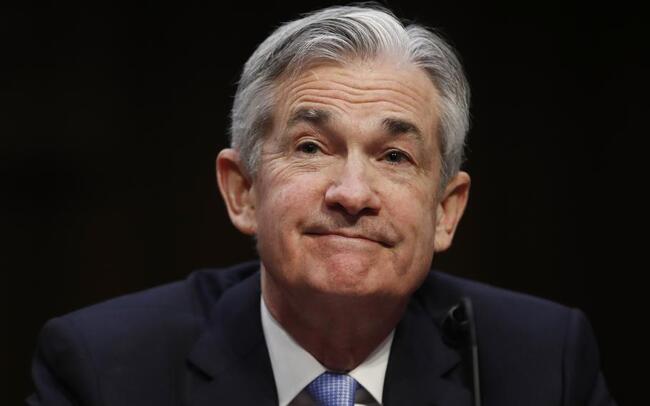Highlights:
- Waller emphasized that DeFi can enhance efficiency in traditional finance systems.
- Smart contracts streamline transactions, lowering settlement and counterparty risks.
- Stablecoins play a crucial role in DeFi, reducing reliance on intermediaries.
At the 19th Annual Vienna Macroeconomics Workshop in Vienna, Austria on Friday, Federal Reserve Bank Governor Christopher Waller said decentralized finance (DeFi) can be a complement to centralized finance (CeFi) as these technologies can improve efficiency in traditional financial processes.
He also highlighted DeFi smart contracts and distributed ledger technology. These advancements could enable more efficient trades by automating complex transactions and minimizing settlement risks. Waller said CeFi can improve their efficiency with these technological innovations.
BREAKING: 🇺🇸 SEC approves NYSE options trading on spot #Bitcoin ETFs. pic.twitter.com/8OdXRbpyHY
— Bitcoin Magazine (@BitcoinMagazine) October 18, 2024
He described the benefits of smart contracts, which streamline transactions by integrating various elements into a unified process. According to Waller, this can help reduce settlement and counterparty risks, ensuring payments occur only when sellers meet their obligations.
DeFi Cannot Fully Replace Centralized Finance
Waller noted that lending money involves locating a borrower, negotiating terms, and managing default risks, which can be difficult for many individuals. Banks streamline this process by linking lenders with borrowers, managing legal documentation, and addressing risks. This is why banks first emerged in ancient Mesopotamia and continue to prosper today.
Waller said DeFi technology can lessen the need for some intermediaries, but these institutions still provide essential services. There are costs associated with those services, such as fees, loss of control over assets, and reliance on trust.
This is where DeFi aims to address these issues through blockchain and smart contracts. However, Waller cautioned that this doesn’t mean people will soon abandon their banks. Trust in centralized finance, despite its flaws, can’t be fully replaced by DeFi.
Role of Stablecoins in DeFi
Christopher Waller highlighted the importance of stablecoins in DeFi. He described them as “digital currency” that reduces dependence on traditional payment intermediaries. This shift can help lower global cost pressures.
He also warned about the risks linked to stablecoins, such as their potential role in illicit finance and the historical issues with synthetic dollars experiencing runs. The policymaker stressed the need for targeted regulations to safely harness the benefits of DeFi.
He said:
“If appropriate guardrails can be erected to minimize run risk and mitigate other risks, such as their potential use in illicit finance, then stablecoins may have benefits in payments and by serving as a safe asset on a variety of new trading platforms.”
US Stablecoin Adoption Declines
According to Chainalysis’ latest report, the U.S. is falling behind in stablecoin adoption due to regulatory uncertainty. Meanwhile, global demand for U.S. dollar-backed stablecoins is rising. In contrast, the country has experienced a significant increase in Bitcoin (BTC) activity following the launch of spot Bitcoin exchange-traded funds (ETFs).
JUST IN: U.S. STABLECOIN ADOPTION IN 2024 FALLS BEHIND GLOBAL MARKETS, CHAINALYSIS REPORTS
— BSCN Headlines (@BSCNheadlines) October 17, 2024
U.S. Lawmakers Yet to Regulate DeFi
U.S. lawmakers have not yet regulated DeFi in recent bills. Instead, they directed the Treasury, SEC, and CFTC to study the space. A bill gives the CFTC jurisdiction over “digital commodities” while the SEC oversees digital assets linked to investment contracts. Additionally, the SEC’s proposed rule seeks to redefine exchanges, potentially necessitating the registration of decentralized projects. This move has encountered resistance from the cryptocurrency industry.






